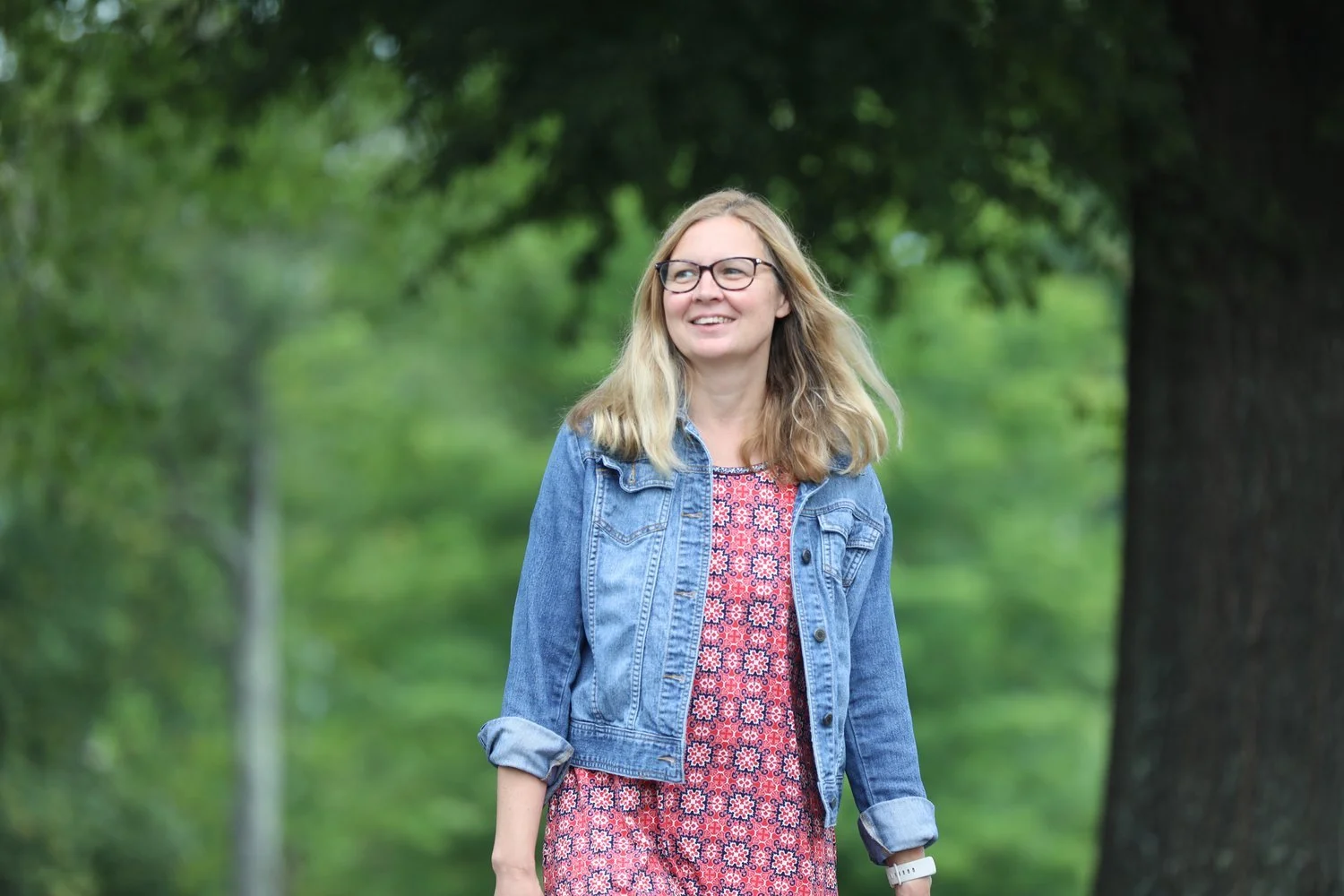Maverick at Oxford
Becca LaVoie studied Romantic poetry at Oxford during summer break.
Becca LaVoie swore an oath this summer to obtain a library card to Oxford University’s oldest library. This was one of many exciting adventures Mrs. LaVoie had while studying at Exeter College within Oxford University this July. Now back in the classroom, she is sharing what she learned with her English students. We sat down with Mrs. LaVoie to learn more about her time at Oxford.
Tell us about your scholarship and living in Oxford this summer.
I won a Teachers Learning Abroad (TLAB) scholarship from the Charlottesville branch of the English Speaking Union. I chose to study in the English Literature Summer School at Exeter College within Oxford University for three weeks in July this summer. I lived on campus at Exeter in Oxford, ate meals in the dining hall, and participated in weekend trip to Stratford upon Avon and Bath.
Who were your classmates and what was an average day like?
I was with teachers from across the United States and around the world. Every participant began the day with a plenary lecture series that began with Old English poetry on day one of classes and by the last day covered books written within the last forty years. In addition to the lecture series, every participant picked two classes to focus on in depth. I chose Old and Middle English Literature and Romantic Poetry. These classes met for two hours twice a week with Oxford University Tutors (they use tutor instead of professor).
What specifically did you read and study?
In my Old and Middle English class we studied Dream of the Rood, doom paintings, Sir Gaiwan and the Green Knight, The Pearl, and various writings by Geoffrey Chaucer. One special aspect was studying about doom paintings and then visiting various chapels in Oxford and seeing centuries old paintings all around the city. On a weekend excursion to Stratford upon Avon, we were able to visit the Guild Chapel where William Shakespeare’s father is credited with saving its priceless doom painting from destruction during a time of religious upheaval.
In my poetry class we studied William Wordsworth, William Blake, Lord Byron, John Keats, and Samuel Taylor Coleridge. My favorite poet was William Wordsworth and his most famous poem, The Prelude. He worked on and edited The Prelude over the course of forty years and it covers his life and development as a poet. It was fascinating to read The Prelude and then go back and read other poems that could be connected to biographical events in his own life.
Tell us more about the weekend excursions.
We took two weekend excursions together as a summer school. The first weekend we visited Stratford upon Avon. The weekend trip began with a lecture on Friday evening from the Shakespeare tutor at Oxford. He then accompanied us to Stratford and gave us a personal walking tour ending with a lunch of fish and chips at what he claims to be the best fish and chips in England! We then had time to visit the Guild chapel, Shakespeare’s tomb, Shakespeare’s house, and see a play at the Royal Shakespeare Company.
Our second weekend excursion was to Bath. That also began with a Friday evening lecture by the director of the Summer School who was the Jane Austen expert. In Bath, we visited the restored Roman baths, walked by several of the homes Jane Austen stayed in while writing in Bath, and we visited the Jane Austen Museum and enjoyed afternoon tea with Mr. Darcy.
You had access to one of the world’s greatest libraries. What was this like?
All participants in the English Literature Summer School were allowed to apply for library cards from the Bodelian library. Bodleian libraries are one of the oldest libraries in Europe. And the second largest library in Europe. First library at Oxford was in 1320 and then Duke Humphries donated his priceless collection in 1488. His reading room is the oldest room in the Bodleian, and I got to sit in there and study. Books are alarmed and chained to the shelves and security is tight. You actually swear an oath to obtain your library card. What’s really special about the library is that Thomas Bodleain arranged an agreement that the library is a legal deposit library and receives a copy of anything published.



